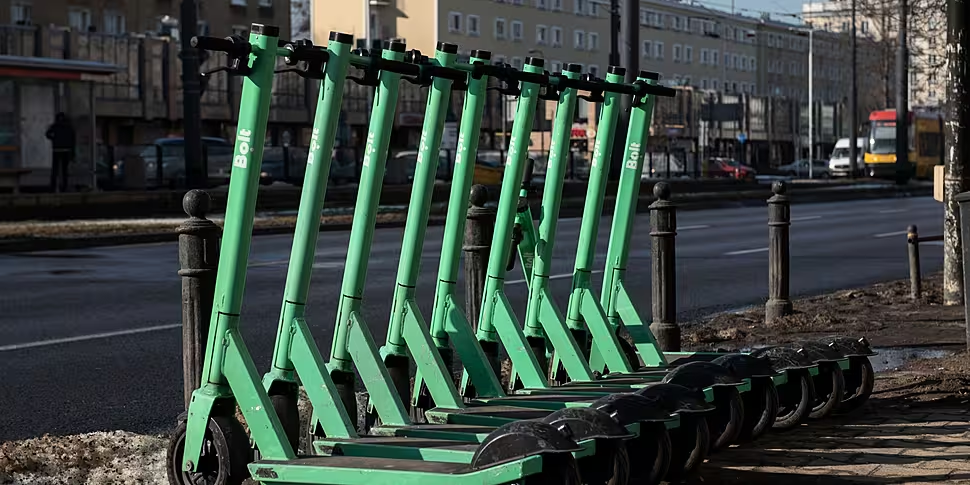E-scooters are to be treated exactly the same as a bike under Irish law.
Legislation for e-scooters on Irish roads is set to become a reality, after the Cabinet approved the Road Traffic and Roads Bill 2021.
Under the new rules, a new class of 'Powered Personal Transporters' (PPTs) will be created - with these not requiring the same licensing, insurance or tax considerations as motorbikes.
It is hoped the bill could become law towards the end of December.
However scooter sharing companies say it could be at least next spring before they are operational here.
While taxi firm Free Now says it plans to offer an e-scooter booking option though its app "in the coming months".
Under current provisions, all non-mechanically propelled vehicles must use roads and cycle tracks - but not footpaths.
While any sanctions for scooters will depend on what regulations stem from the legislation.
Motoring journalist Geraldine Herbert told The Pat Kenny Show what the law change means.
"They're defined as being designed for one person, not having a weight over 55 kilos and with a speed limit not below six kilometers and not above 25.
"So that's what they're defining as the new vehicle class."
She says this will give some clarity around the issues of licences and insurance.
"This was the issue beforehand, this was why they were illegal on the roads - because they were defined as mechanically propelled vehicles, and that meant you needed all of these requirements and yet you couldn't legally get them.
"There are apparently quite a large number of providers that are waiting to supply the market.
"So there's a huge demand for this, and I'd say we're one of the last countries in Europe to legislate for e-scooters - so it's not before time".
But she says holding scooter renters to account could be difficult.
"I presume a Guard would actually have to see them breaking the law in order to actually do anything about it.
"I think that will be an issue there.
"But I suppose I would hope that with this legislation comes actual regulation and a framework around the operation of them.
"If there's proper places for them to be, we would hope that most people will comply with it.
"At the moment there's no regulation around it because they are illegal".









